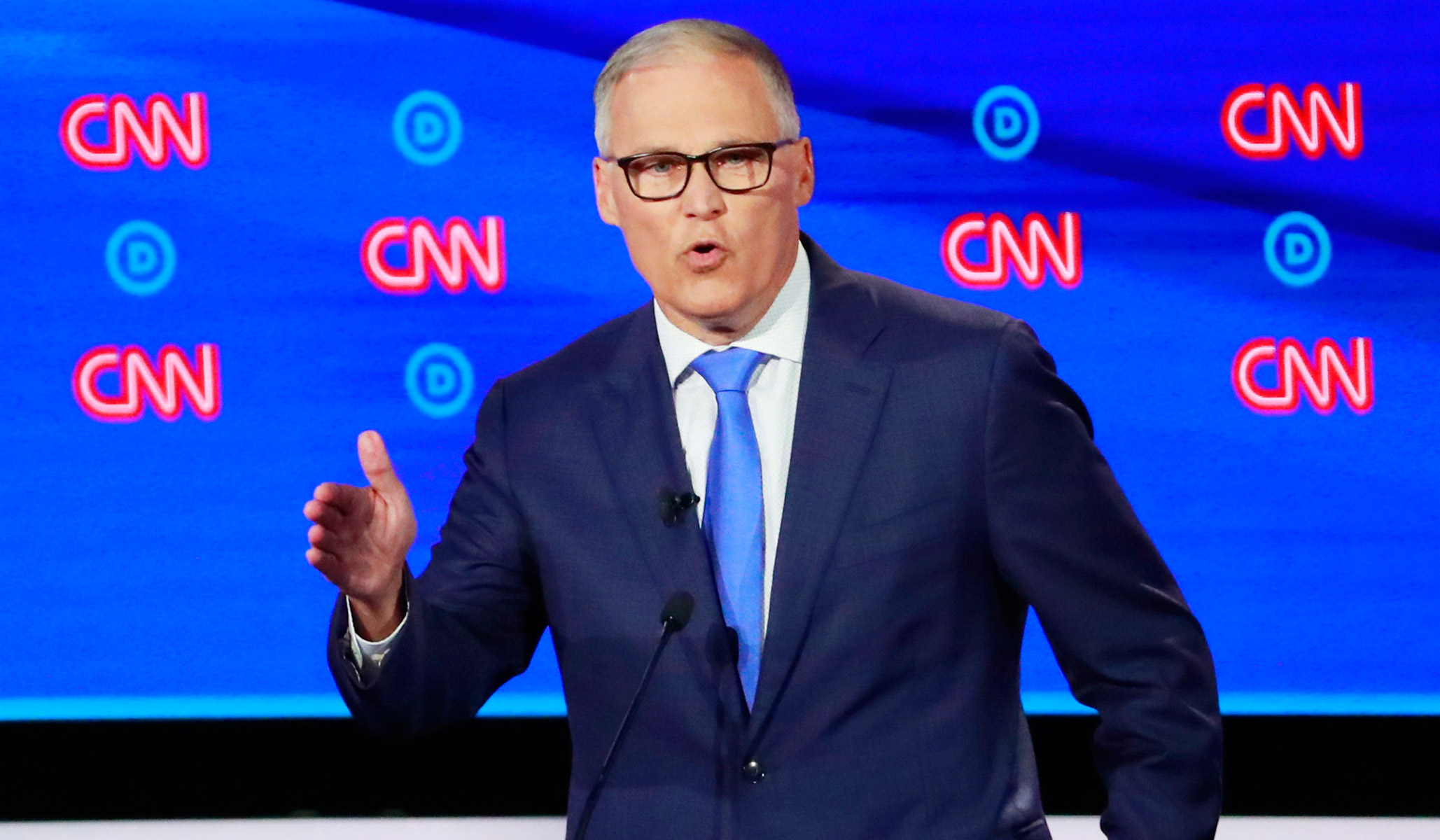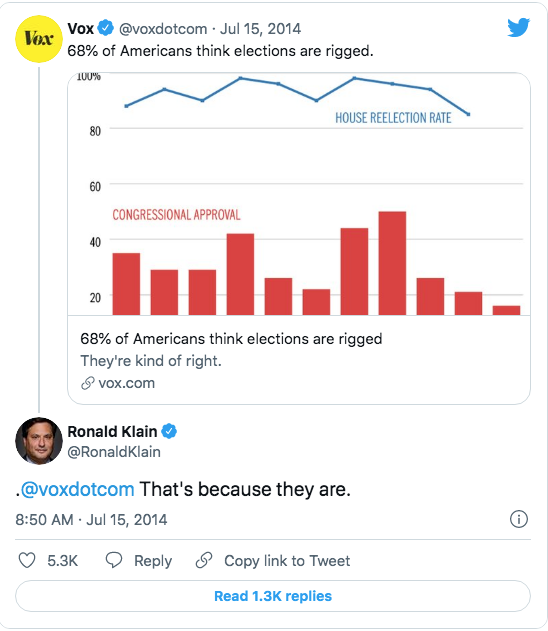
Washington governor Jay Inslee seems unclear on the whole “no law . . . abridging the freedom of speech” concept:
What does he have in mind? Here’s what Inslee referenced.
The governor also assailed three Republican state lawmakers — Brad Klippert, Vicki Kraft and Robert Sutherland — who attended at taxpayer expense an election conspiracy theory conference in South Dakota last summer. The Seattle Times first reported the details of that trip earlier this week. “The defeated president and his allies, including some legislators in Washington state, are perpetuating the belief that this election was stolen from them,” Inslee said. “What do you think is going to happen if you perpetuate that belief? Of course violence can be happening as a result of that.”…The governor likened the rhetoric about elections being stolen to “yelling fire in a crowded theater.” “The defeated president as recently as an hour ago is yelling fire in the crowded theater of democracy,” Inslee said, referring to statements Trump issued Thursday. Those statements included: “Never forget the crime of the 2020 Presidential Election. Never give up!”
This is a straightforward effort to criminalize speech about politics. A broad spectrum of stolen-election and rigged-election theories have been widely circulated in the United States since at least the 1824 election, if not 1800. Most of them are lies, hokum, and hyperbole, but our system of political speech has always allowed an open contest in the marketplace of ideas to deal with that. As Inslee’s own state’s Supreme Court wrote in that 2007 case striking down a ban on candidates lying about each other, “The notion that the government, rather than the people, may be the final arbiter of truth in political debate is fundamentally at odds with the First Amendment.”
Moreover, this is specifically the kind of speech that it is common to hear from Democrats. Kamala Harris just hired a new communications director, Jamal Simmons, who tweeted less than a year ago — not for the first time — that he believed “W stole the 2000 elex.” And Simmons is, if anything, more temperate on the subject than many leading Democrats. Joe Biden’s Chief of Staff, Ron Klain, has long pushed a similar line, and in 2014, when Vox tweeted a poll saying that 68% of Americans think U.S. elections are rigged, Klain responded, “That’s because they are.”

Don’t hold your breath waiting for the likes of Jay Inslee to call for any of these people to be prosecuted. Presumably, what Inslee means when he limits this to lies “likely to incite or cause lawlessness” is that he will appeal to sympathetic courts to say that it’s only likely to incite that when his political opponents do it. But a rule-of-law system is supposed to mean one rule for everyone.
Note that the examples Inslee cites — legislators attending a conference, Donald Trump issuing a press release — are a far cry from the constitutional requirement of inciting imminent criminal action, a standard that would be imposing to apply even to Trump’s January 6 speech. As David Harsanyi has observed about the “fire in a crowded theater” canard:
This is probably the weakest – and the most infuriatingly overused — analogy used in efforts to restrict rights. The line, taken from Oliver Wendell Holmes’ decision in Schenck v. United States and subsequently repeated by thousands of censorship apologists since, was at the heart of one of the most egregious violations of free expression in American history. The Schenck decision allowed the Wilson administration to throw anti-war activists into prison for violating the Espionage Act of 1917. It’s difficult to think of a more legitimate exercise of political expression than debating war and peace. In any event, Schenck was basically overturned by the Brandenburg v. Ohio decision, which found that the First Amendment protects speech unless it is likely to incite “imminent lawless action,” which yelling “fire in a theater” does not.
It may be that Inslee was just engaging in a one-day January 6 message, but his press release sounds as if he actually intends to push this into law. That should deeply alarm friends of the classical liberal values of free speech and democracy. It would be one thing if we read a statement like this from some inexperienced young progressive firebrand. But Jay Inslee — who followed this up with an executive order permitting racial discrimination by the state government — is about as much of an experienced, establishment figure as exists in the Democratic Party. He’s been in public office almost continuously since 1989. He spent a decade and a half in Congress. He’s the longest-serving sitting governor in the United States. He ran for president in 2020. That he is pushing for laws to throw political opponents in jail over political speech should tell us how deep the rot is on free political speech among the Democrats.